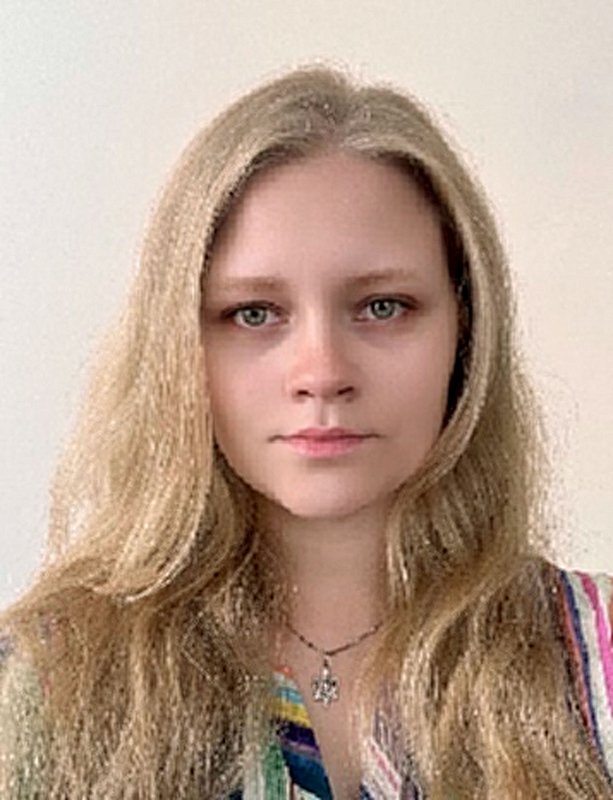Igor Sikorsky Kyiv Polytechnic Institute is a trusted leader in the training of modern IT specialists. But when choosing a future IT specialty, enrollees do not always understand in which field they would like to work and what are the specifics of training specialists at a particular department. And here, work in student scientific clubs appears really helpful. There are several clubs in almost all departments of the Igor Sikorsky Kyiv Polytechnic Institute. Involvement of students in such activities is one of the areas of career guidance work at the university.
"KP" talked about scientists of the Igor Sikorsky Kyiv Polytechnic Institute – students’ scientific supervisor - in previous issues (No. 33-34 and No. 39-40 for 2022). Today's story is about work with talented youth at the Department of Mathematical Modelling and Data Analysis of the Educational and Research Institute of Physics and Technology. The main scientific field of the department is big data analysis techniques, machine learning, pattern recognition based on various types of data, mostly satellite data. Highly experienced lecturers, scientists of the National Academy of Sciences of Ukraine, leading experts in the field of information technologies and applied mathematics are involved in the educational process. Graduates of the Department of MMDA are distinguished by deep knowledge of computer science, physics and mathematics, which are the basis for the developing of artificial intelligence.
The Applied Mathematics Club that operates at the department inspires interest of young people in research. Professor Nataliia Kussul, Head of the Department of MMDA, shares: "Both students and interested schoolchildren participate in the work of the club. We want young researchers to go and solve some interesting and important problems consciously. For them, summer schools and competitions are held on the basis of the Educational and Research Institute of Physics and Technology, they also participate in international events. Such participation stimulates young people, develops their capabilities." Then she adds: "Due to covid, which caused a lot of harm, but also opened up new perspectives, we got used to remote work. Therefore, now our club works in a mixed format: face-to-face and online. Anyone from different regions can join. For this there is an e-mail, a Telegram group where participants discuss their tasks, you can also contact the department's official mail."
The head of the club is a young employee, assistant of the department, Hanna Yailymova. She began her scientific activity at the Institute of Space Research of the National Academy of Sciences of Ukraine and the State Space Agency of Ukraine in 2015, when she was still doing the masters at Taras Shevchenko National University of Kyiv. Hanna's first report on the topic of satellite monitoring took place in 2016 at the XIV All-Ukrainian scientific and practical conference of students, post graduate students and young scientists "Theoretical and Applied Problems of Physics, Mathematics and Informatics", which was held by the Igor Sikorsky Kyiv Polytechnic Institute. For 7 years, the scientist has been working with various satellite and geospatial data, she has become one of the main creators of maps of the uppermost layer of soil and types of crops for the territory of Ukraine with a spatial resolution of 10 meters. The obtained results were very important for the state, and were published both on the geoportal of the State Service of Ukraine for Geodesy, Cartography and Cadastre and in the newly created system of the State Agrarian Register of Ukraine.

In 2021, Hanna Yailymova passed Ph.D. defense under academic supervision of Professor Nataliia Kussul and a corresponding member of the National Academy of Sciences of Ukraine, Professor Serhii Liashko, and received the degree in applied mathematics. The defense of the thesis became an impetus for teaching activity and work with students. Currently, Hanna Oleksiivna teaches "Mathematical Modeling" and "Systems Analysis" to senior undergraduate students.
The young scientist is an active participant in state and international projects in the field of satellite monitoring and data analysis, including projects of the National Research Foundation of Ukraine, projects of the World Bank and the European Commission. At the same time, she actively participates in the work of international conferences. In 2022 she spoke in presence at the Living Planet Symposium, one of the largest symposia that brings together scientists and researchers from around the world to present and discuss the latest discoveries in the field of Earth science and technological advances in earth observation.
In addition, at the end of the year, she took part in the work of the 12th Annual Coordination Meeting of UN-SPIDER Regional Support Offices (United Nations Platform for Space-based Information for Disaster Management and Emergency Response); in the WorldCereal Final Meeting and Workshop; in the final meeting of the Open Clouds for Research Environment project, where she gave a report on Quantifying war damage in Ukraine based on EO data in support of European EO4UA initiative. Her scholarly endeavour received worthy recognition: the scientist was recently awarded a scholarship of the Cabinet of Ministers of Ukraine.
And what about her charges? They also do not lag behind the others. In autumn, the club members, undergraduate students Volodymyr Kuzin and Yevhen Hryhorenko, and a master student Oleksiy Diakun, took part in the NASA Space App Challenge hackathon, where they sailed through to the international stage and received valuable prizes. The club members also participate in ongoing projects, in particular, the OCRE project on the use of cloud resources on the CREODIAS platform for satellite data analysis (the project was won due to the initiative of the Polish company CloudFerro to support Ukrainian scientists during the war and the Ukrainian-German Centre for Key Competences AIDA-TI, which is co-founded by the Igor Sikorsky Kyiv Polytechnic Institute and Anhalt University of Applied Sciences, Germany. – Ed.)
This year, the department had a situation when significantly more students were enrolled for the master's and postgraduate courses than planned. According to the head of the department, this indicates a mature choice of young researchers. Students who finish their undergraduate studies and want to prove themselves, do something really important, are already thinking about what they will do and who they will really be in life. "When you have knowledge in mathematics, English, programming plus physics, then not only do you open the door to computer science, but you open the door to complex modern fields, where the competition is not so high and there is an opportunity to make a statement. You open doors to really cool institutions. It works as a social elevator," Nataliia Kussul concludes.

